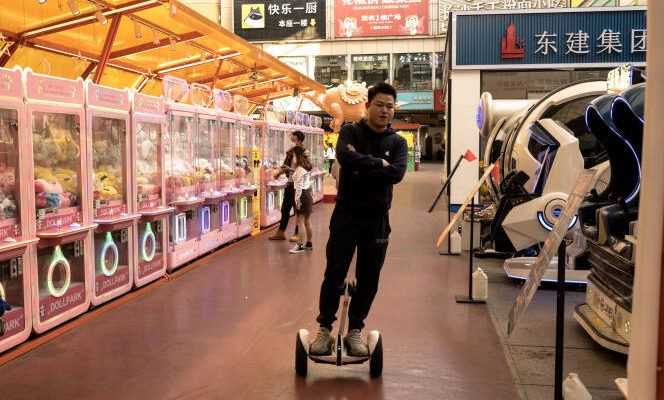After years of selling welding machines to metallurgy factories in Nanhai, a district in the north of Foshan, an industrial city in Guangdong (southern China), Zhao Liang identified a vein: he now fixes the same welding tools. on robotic arms that do the work for the workers, and sell it all to the same customers. “ Many companies want to replace employees to save money, explains the 30-something. In my parents’ day, the advantage of China was to have an abundant, inexpensive workforce, and ready to work very hard. Now there are fewer and fewer young people, and they no longer want to do this kind of work in the factories ”, he continues.
A native of Sichuan, a poor southwestern province, he emigrated to Foshan twelve years ago to seek his fortune in the steel industry. At the head of four employees in his SME founded in 2019, the young man with a dark complexion and thick hair, combed on the side, had an excellent year 2020, despite the Covid-19 pandemic. He was able to buy his first apartment, in a residence built a few streets away.
The neighborhood has changed a lot. “ Before, here, it was fields, swamps, and a few steel factories. Foshan was known for recycling steel. Today, most foundries have had to move. My father, who worked in the sector, lost his job ”, describes Zhao Liang. Heavy industry is no longer popular in Foshan, one of those gigantic factory towns in Guangdong, the province facing Hong Kong. Instead, the city known for textiles, bathroom ceramics and metal, would like to move upmarket.
Robotization is encouraged and research receives generous support from the local government. Even Mr. Liang’s small workshop, with its three yellow articulated arms, its workbench, and its small dark desk where he serves tea, is eligible for grants: “ We are in the process of registering a few patents and, in a few months, we will be able to apply for assistance. We can expect between 50,000 and 500,000 yuan [entre 7 000 et 70 000 euros] for an SME ”, underlines the young boss.
“We are struggling to recruit”
Twenty years after China’s accession to the World Trade Organization, Foshan, a large industrial town adjoining Canton to the west, retains some of its traditional industries. To the south are still the textile workshops, which have contributed to national development thanks to their cheap labor. In large concrete buildings of a few stories, workers squint, leaning over sewing machines. The average age seems rather advanced and, for lack of succession, wages are increasing: experienced workers earn between 6,000 and 10,000 yuan per month, more than young white-collar workers working in modern buildings in the city center, but at the same time. price of weeks which often exceed sixty hours.
You have 59.6% of this article to read. The rest is for subscribers only.
